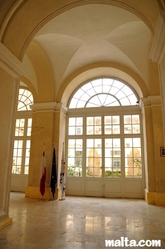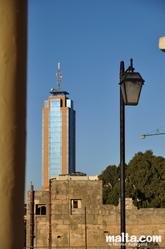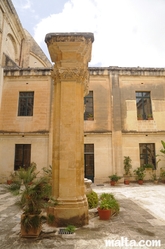Work in Malta and Gozo
Maltese economy and working situation
Skills in demand in Malta
If you are thinking about joining the Maltese workforce, it is relatively easy if you are an EU citizen. To avoid an influx of foreign workers, Malta still holds a work permit scheme, but these are automatically granted to EU citizens.
It will be slightly more complicated if you’re a third country national, but if you have a good command of the English language and a highly demanded skill (such as IT specialists), then your chances are good.
Where to look for a job in Malta:
There are several ways to look for a job in Malta: you may use the public employment service ETC and browse through their online database. You can also subscribe to their mailing list, where you will receive the employment opportunities directly to your email address.
Newspapers are also an effective way to find a job. The Sunday Times, especially, has a vast classified section with plenty of career opportunities. If you’re interested in working in the Public Sector, you might consider joining the Direct Mailing Services, where employment opportunities within the local government ministries and entities are sent directly to your inbox.
Otherwise you can turn to several private recruitment agencies, which will allow you to either subscribe to their mailing lists or submit your CV to their website and they match your abilities with the required skills in the labour market.
Finally, you could also ask around in different establishments or submit your CV to companies who you think might be interested to hire you. Both strategies are equally effective.
Work permits in Malta
The Maltese Law requires a work permit for all foreign workers. The application form can be downloaded from ETC , and together with a copy of passport and the relative payment, it should be sent to ETC. Permits are issued within a few days, and are usually valid for a period of one year.
For EU citizens: The work permit is automatically granted.
For third-country nationals: Additional conditions are requested: candidates need to have a promise of work and a special skill or qualification for which a considerable demand exists. In addition to the application form, third country nationals need to submit a CV, a job description, references, a passport photo, a copy of their passport, a copy of visa, a copy of qualifications, a cover letter by the employer. There could be additional requests for other documents. If the application is not accepted, a rejection letter is issued within 15 working days, and the candidates have the right to know the reason of rejection by sending an email to employment-licences.etc@gov.mt
Income tax in Malta
Residents in Malta are subject to the following revenue taxation bands on yearly bases. The rates are subject to annual review according to the governmental budget.
Married Rates for 2011
INCOME TAXABLE INCOME TAX RATE
on the first €11,900 €0 – 11,900 Nil
on the next €9,299 €11,901 – 21,200 15%
on the next €7,499 €21,201 – 28,700 25%
on the rest €28,701 and over 35%
Single rates for 2011
INCOME TAXABLE INCOME TAX RATE
on the first €8,500 €0 – 8,500 Nil
on the next €5,999 €8,501 – 14,500 15%
on the next €4,999 €14,501 – 19,500 25%
on the rest €19,501 and over 35%
Source: www.ird.gov.mt
Self-employment in Malta
Becoming a self-employed in Malta is a fairly straightforward procedure. First you have to obtain a social security number and then register with the VAT department through their website or directly at the Department’s offices. Once you have your VAT number from the VAT deprarment you have to register with the Employment and Training Corporation by sending an engagement form that you be dowload from their website or be obtained from any ETC office.
You also have to register as self-employed with the Inland Revenue Department to be able to pay your social security contributions and taxes. Again, you can do this online through the website or by going personally to the customer office. The final step is to apply for a Trade Licence with the Trade Department, while if your venture entails imports or exports, an extra licence is required.
You might also need to contact a local bank, which can be found in many of the towns and villages. Depending on the nature of your business, you might also want to contact Malta Enterprise since this agency aims to attract foreign investment and thus can answer all your questions.
Maltese employment law and working conditions in Malta
Employment in Malta always involves an employment contract, where the worker agrees to carry out specific duties for an employer, earning an agreed salary in return. A written contract stating the working conditions is to be handed to the employee by 8 days from commencing the employment.
Employment could be for an indefinite or a fixed period, either on a full-time or part-time basis. Whatever the type of employment, the terms and conditions explain your rights and duties, so make sure to read the contract well.
A trial period, or probation, is normally six months long, although shorter or longer periods are also possible. Probation is normally established at the start of employment, and during this time, employment may be terminated by either party without giving any reason provided that a week’s notice is given to the other party in case more than one month has passed from commencement.
If employment is ended because of redundancy, the individual is entitled to re-employment if the same post is available again within a year from one’s termination date. Redundancy demands that the last people who were employed would be the first ones to be dismissed.
The most common contracts are full-time with an indefinite period, also known as permanent contracts. However, temporary employment is increasingly becoming popular in Malta, especially in high-profile positions and in skilled labour for particular project and short periods.



